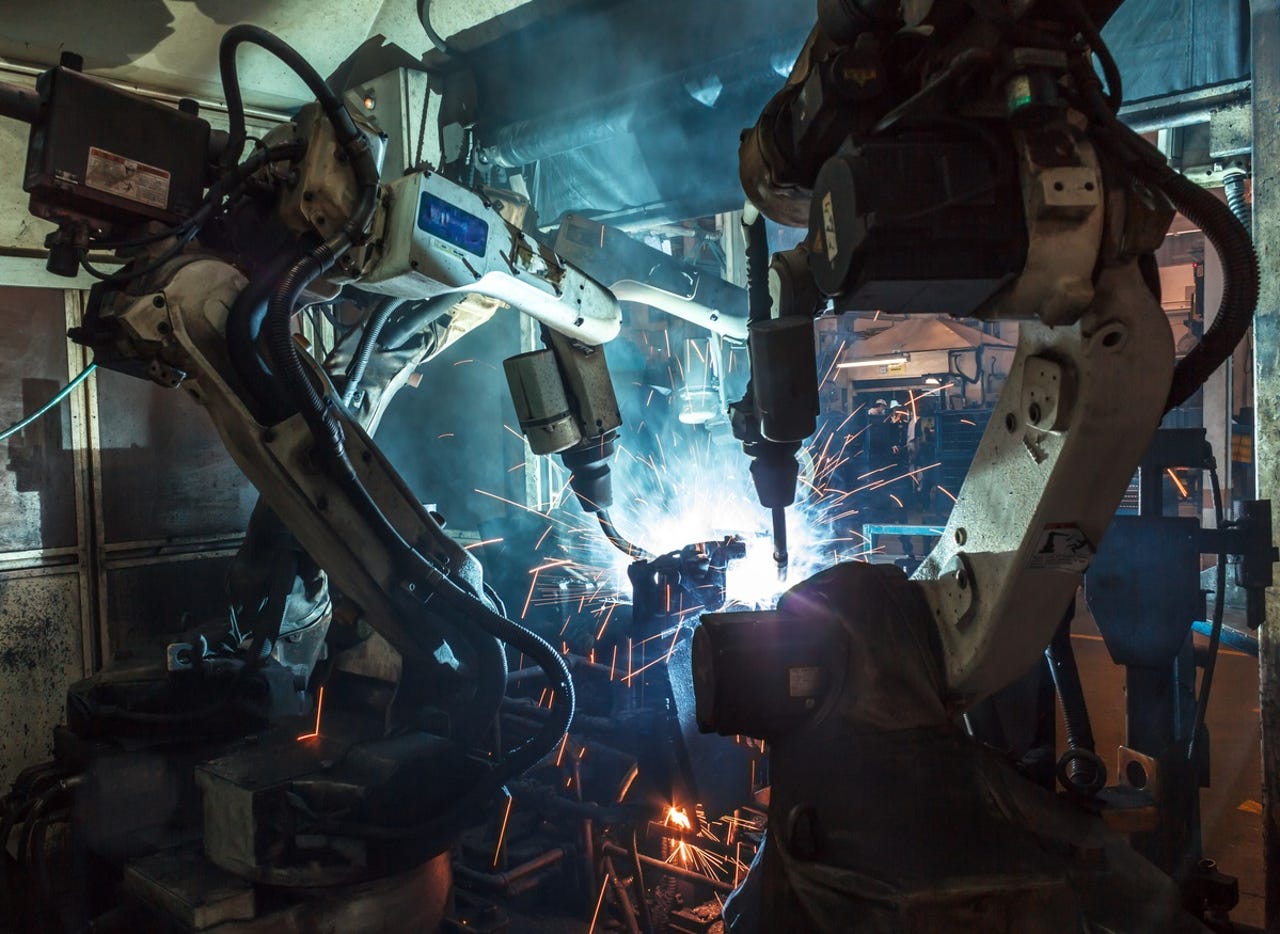Mark Cuban says Donald Trump's jobs plan will backfire because he doesn't understand technology


Getty Images/iStockphoto
President Donald Trump has said he will be "the greatest jobs producer God ever created," but Mark Cuban disagrees. In fact, Cuban suspects that Trump's plan to bring manufacturing back to the US will backfire and lead to overall job loss.
Automation is going to cause unemployment and we need to prepare for it. https://t.co/YEp5txG9aP
-- Mark Cuban (@mcuban) February 20, 2017
In an interview with CNBC on Friday, Cuban said, "[Trump] is completely unaware of how technology works."
Trump has blamed America's manufacturing losses on trade agreements, taxes, and regulatory issues that sent work overseas. However, we can't just bring last century's factories back to the US and expect prosperity. Humans aren't the best candidate for the job anymore, especially if we're talking about making physical things.
For an increasing number of jobs, robots are stronger, faster, more precise, and the most reliable. Cuban pointed out that new factories will likely be heavily automated. He explained:
I'm willing to bet that any of these companies that are building new manufacturing plants . . . are going to end up leading to fewer people being employed. That those companies that are building these new plants -- they're not going to end up having more employees in two or three or four years. They're going to end up having less. And there's nothing President Trump can do to stop that because trends in technology -- machine learning, neural networks, deep learning, etc. -- [are] changing the nature of work.
So, if it takes fewer employees to get work done, then how should we deal with this disruption? Last week, tech moguls and legislators around the world weighed in on the dilemma.
At the World Government Summit 2017 in Dubai, Elon Musk said, "What to do about mass unemployment? This is going to be a massive social challenge. I think ultimately, we are going to have to have some kind of universal basic income. I don't think we're going to have a choice."
Meanwhile, Microsoft cofounder Bill Gates said that robots should be taxed at a similar rate that human employees pay in income tax. In an interview with Quartz, he theorized that the government could control job displacement by using a robot tax to fund human service jobs such as teaching children and caring for the elderly.
"So if you can take the labor that used to do the thing automation replaces, and financially and training-wise and fulfillment-wise have that person go off and do these other things, then you're net ahead," Gates said. "But you can't just give up that income tax, because that's part of how you've been funding that level of human workers."
SEE: Why AI could destroy more jobs than it creates, and how to save them (TechRepublic)
European lawmakers just rejected a similar proposed robot tax, and it's unlikely the Trump administration would approve a new tax that could give other companies a competitive edge.